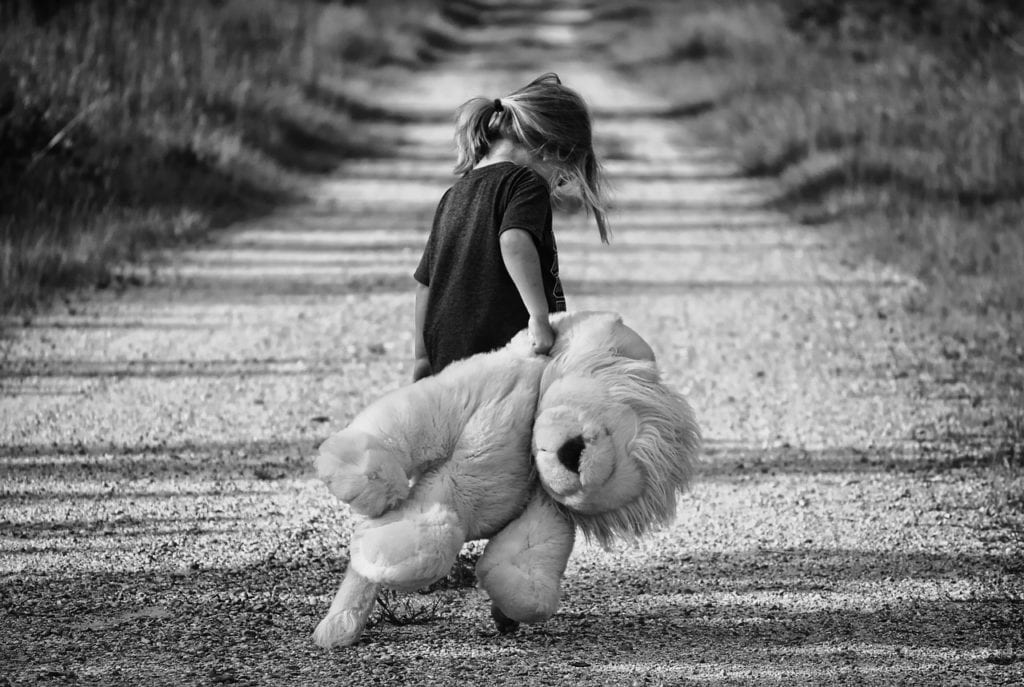
One of the many questions that’s come up during the Nassar case is why so few of his victims spoke up. Several did, and they were not listened to, which simply perpetuated the abuse. BUt those who found their voices were the minority. So why didn’t more young girls say something to someone? It seems a reasonable question. And yet, it’s one that’s asked over and over, every single time an ongoing child abuse case makes the news. Why didn’t they say something sooner? Why did they stay silent about their abuse?
The answer is complex, and the reasons are many. But mental health experts all say the same thing – it’s common. Yes, that’s right – it’s actually normal for children to keep their abuse a secret and not report it. This, in and of itself, can seem inexplicable to adults. And yet, once you understand the reasons behind the silence, it makes so much more sense. So let’s take a look…
They feel responsible:
Some children believe that what is happening to them is their own fault. They believe that they somehow deserve the abuse, or that it is a direct result of something they said or did. “If only I was better/tried harder, this wouldn’t happen.”
They feel embarrassed or ashamed:
Many children realize that the abuse is wrong, but they’re ashamed of what’s happening to them. They feel “dirty” and are worries that telling someone else might make them appear “dirty” in the other person’ eyes. They fear that sharing the secret will earn them nothing but disgust and revulsion from others.
They are afraid of negative repercussions:
There are a lot of children that don’t report abuse because of fear. Either they’re afraid their abuser will harm them if they tell, or harm someone else they love. Sometimes the abuser will threaten a child, telling them that they’ll be punished is they tell anyone, or that their other parent or pet or someone else they care about will be hurt, or get into trouble.
They care about their abuser:
For many children, their abuser isn’t a stranger, but a beloved family member. A parent, older sibling, uncle or aunt or an older cousin. They care about their abuser, and don’t want to get them into trouble, even although they know that what’s happening to them isn’t right.
They don’t think anything will change:
Some children believe that others already know about the abuse they are experiencing, and because no one has done anything, telling won’t change anything. By assuming that the abuse is already being ignored, they assume that talking to someone about it is a waste of time, as it will continue to be ignored.
They may be confused by their body’s reaction to the abuse:
Some children experience physical pleasure or intimacy during the abuse, and so while they are not willing recipients of the abuse, they’re confused about their body’s reactions. Sometimes abusers will also convince children that they enjoy the abuse, or that they want it, and so they are confused about reporting it.
Children tend to be very slow to report abuse, for a whole host of reasons. But slow is not the same as never. In most cases, children end up sharing their experiences with an adult, and the truth comes out. In some cases, the truth has been distorted by time and faulty memory, which can lead to false allegations!
If you or a loved one have been accused of allegedly abusing a child, you are going to need immediate help from an experienced child abuse defense attorney. This is not a time in Michigan’s history where violence against children is tolerated, and people accused of child abuse are given no quarter. Even if the allegations are unfounded! So call The Kronzek Firm right now at 866 766 5245. We are here to help!
